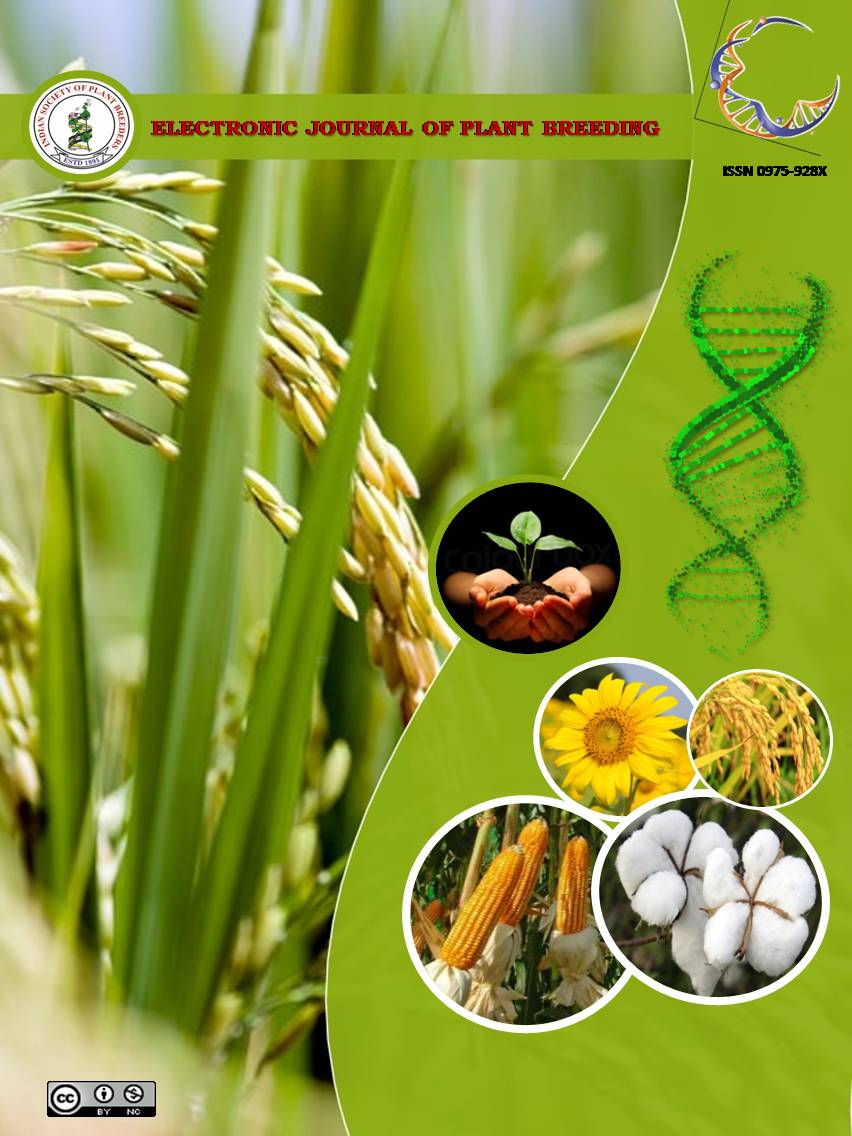Genetic variability and correlation for yield and yield attributes in promising black pepper genotypes
Abstract
Black pepper (Piper nigrum L.), belonging to the Piperaceae family, is the oldest known spice. Genetic variabilityand correlation for yield and yield attributes were estimated in nine black pepper genotypes. Analysis of variancerevealed significant differences for all the characters studied. Maximum Genotypic Coefficient of Variation (GCV)and Phenotypic Coefficient of Variation (PCV) were recorded for rachis weight vine-1 followed by dry berry yieldvine-1 and fresh berry yield vine-1. These characters exhibited high heritability coupled with high genetic advanceover mean indicating the considerable contribution of additive genetic variance in the expression of these characters.Dry berry yield vine-1 had a highly significant and positive correlation with rachis weight vine-1, fresh berry yieldvine-1, spike length and lateral branch length both at the genotypic and phenotypic level. Genotypes HP 2173(HP1117 × Thommannkodi), OPKM, HP 780, Hp 1411 and HP 820 were found promising for the economicallyimportant characters and have the potentiality to release as new commercial varieties.

